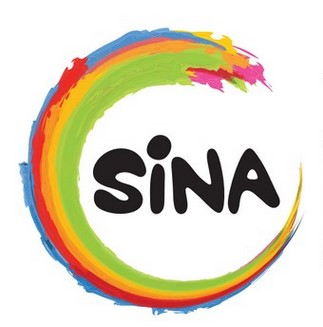For which problem is your initiative a solution?
What does it aspire to achieve?
What is the core of your idea?
What makes it stand out, special?
Who could benefit from your initiative?
Do you know your target audience?
Will your initiative connect to their needs?
And this where our answers:
For which problem is your initiative a solution?
Uganda is facing a social challenge of high youth unemployment combined with one of the world’s highest population growth rates. Only 5% of Ugandans have permanent employment and 83% of youths are unemployed (according to World Bank Statistics). The future of Uganda lies in the creative minds of its youth but the school system is a colonial relict focusing on the memorization that hinders creative thinking and does not allow its students to practically apply knowledge. Creative processes, group work, hands-on experiences or entrepreneurial basics are almost non-existent.
What does it aspire to achieve?
In SINA, Uganda’s youth is holistically enabled and mentored towards the self-determined realization of innovative projects of any kind. In open learning spaces, knowledge and practical skills are linked in such a way that projects become the curriculum itself. SINA focuses on developing and nurturing the potentials within students, ensuring quality and not quantity. Students leave SINA not with a certificate but with a fully established social business with positive impact on the environment and positive impact on the society.
What is the core of your idea?
The core concept is based upon unleashing the full potentials of youth.
Instead of teaching, students are mentored to try out their ideas, learn from mistakes and develop projects into full grown social businesses. The concept is based upon “freesponsibility”, while personal coaching, project mentorship and activities in experienced-based learning are guiding the student’s processes to achieve their goals.
What makes it stand out, special?
SINA transcends Uganda’s current educational model that perpetuates a colonialist rigidity. Providing ideal conditions for youth to develop their dreams, SINA’s holistic approach begins with upcycling construction and ends where students find their own resourceful solutions. Thousands of plastic bags and bottles are burnt daily, creating dangerous waste pollution. SINA’s learning spaces are built out of waste materials solving the social challenge of affordable housing and saving the environment from plastic waste, which is being burnt as the normal disposal system in Uganda. The building’s floors are made from plastic bags and egg shells and the roof from old car tires—marking bold innovation and sparking student’s creativity beyond conventional limits.
Who could benefit from your initiative?
Beneficiaries of SINA are Ugandan youth aged 18 to 25. Without being commanded about what to do or what not to do, students are able to explore their talents and passions to create their social business. Through the social start-ups emerging out of SINA further social and environmental benefit arises. The first officially registered company for example provides terrazzo flooring out of plastic bags and egg shells, providing affordable flooring solutions, while saving the environment from waste.
Do you know your target audience?
Most of the students at SINA come from marginalized backgrounds. SINA’s founding organization Jangu e.V. has sponsored orphans for their secondary education since 2007. Jangu e.V. and SINA founder Etienne Salborn has lived with the orphans for one year in the Kankobe Orphanage in 2006 and has accompanied them and over 100 more orphans on their life journeys ever since. The majority of SINA’s scholars are grown-up orphans who have finished high school and were drowning in the youth unemployment rate. At SINA they are now creating their own employment and are able to support also others. A sustainable circle has been created, whereby sponsored youth are able to sponsor other youth themselves.
Will your initiative connect to their needs?
SINA does not only connect to the youth’ needs but gives scholars the possibility to find their own solutions for having their needs met and expand their impact also to meet the needs of their peers through social businesses with positive impact on the environment and the society.
Click here to visit the HIVOS Social Innovation Awards website.

